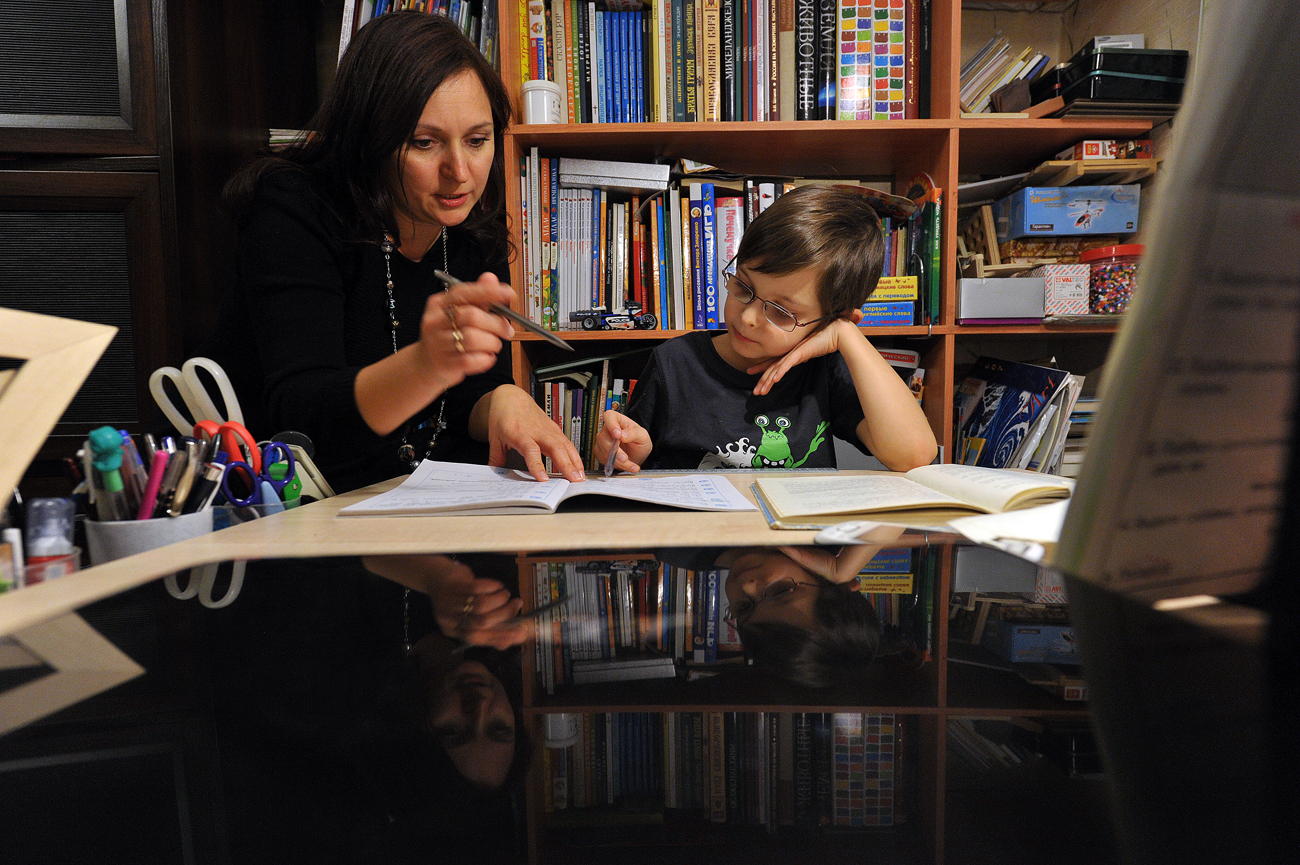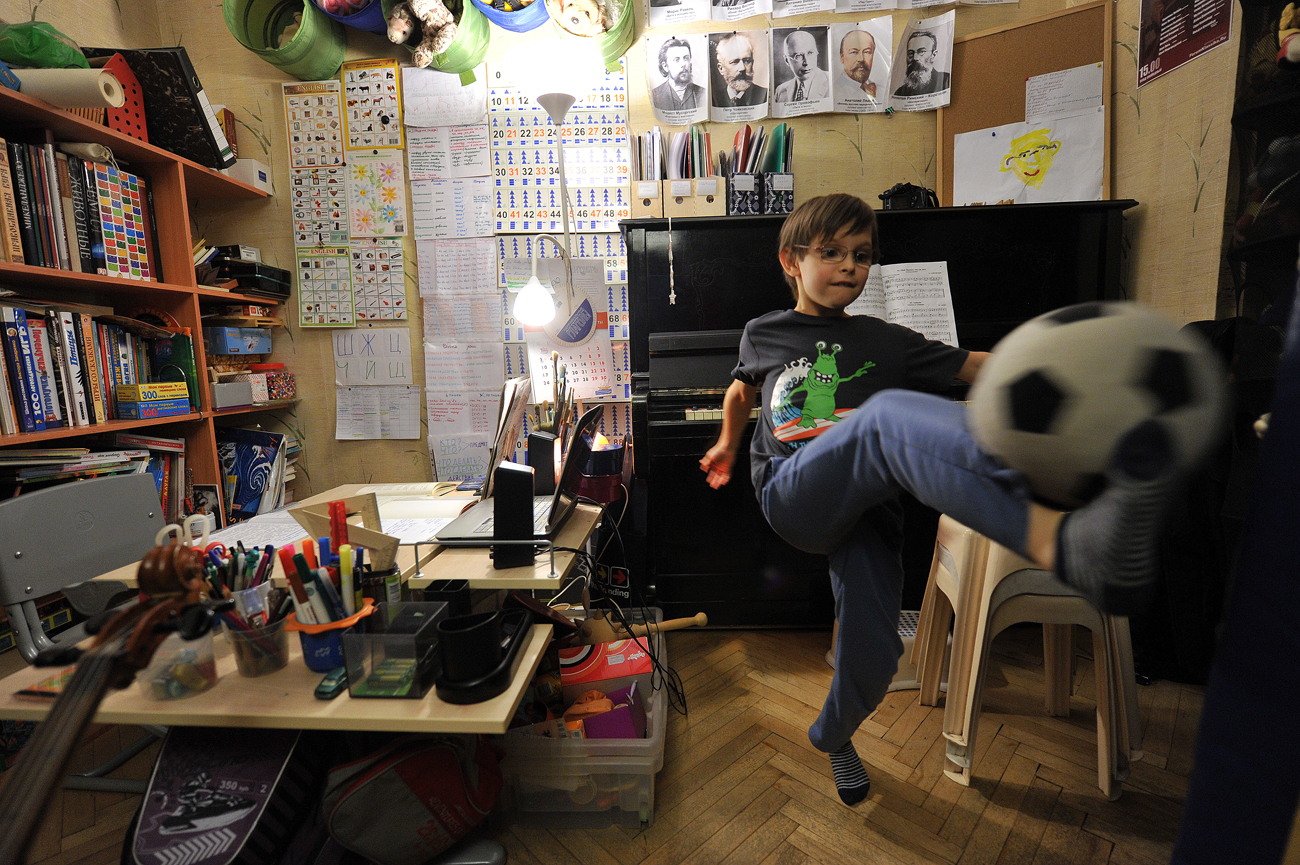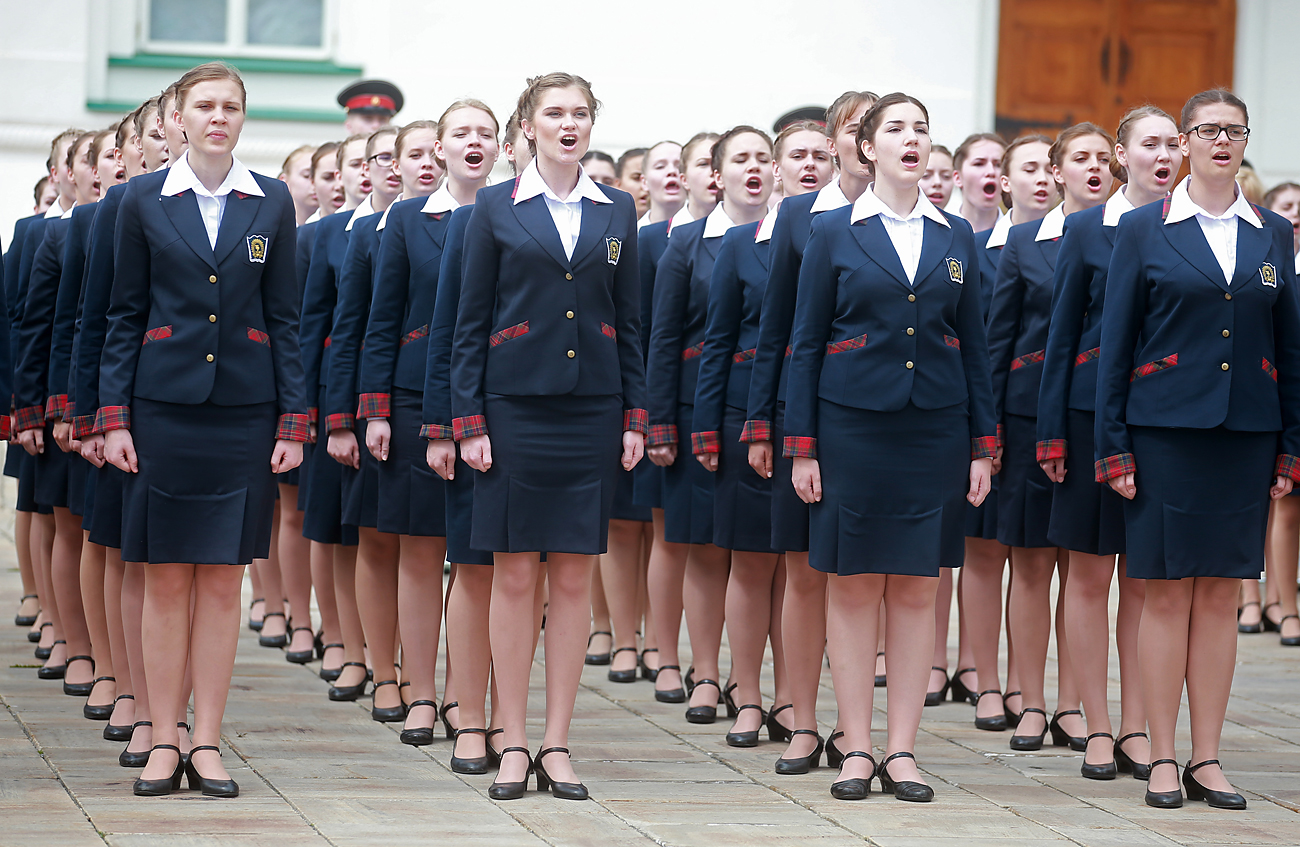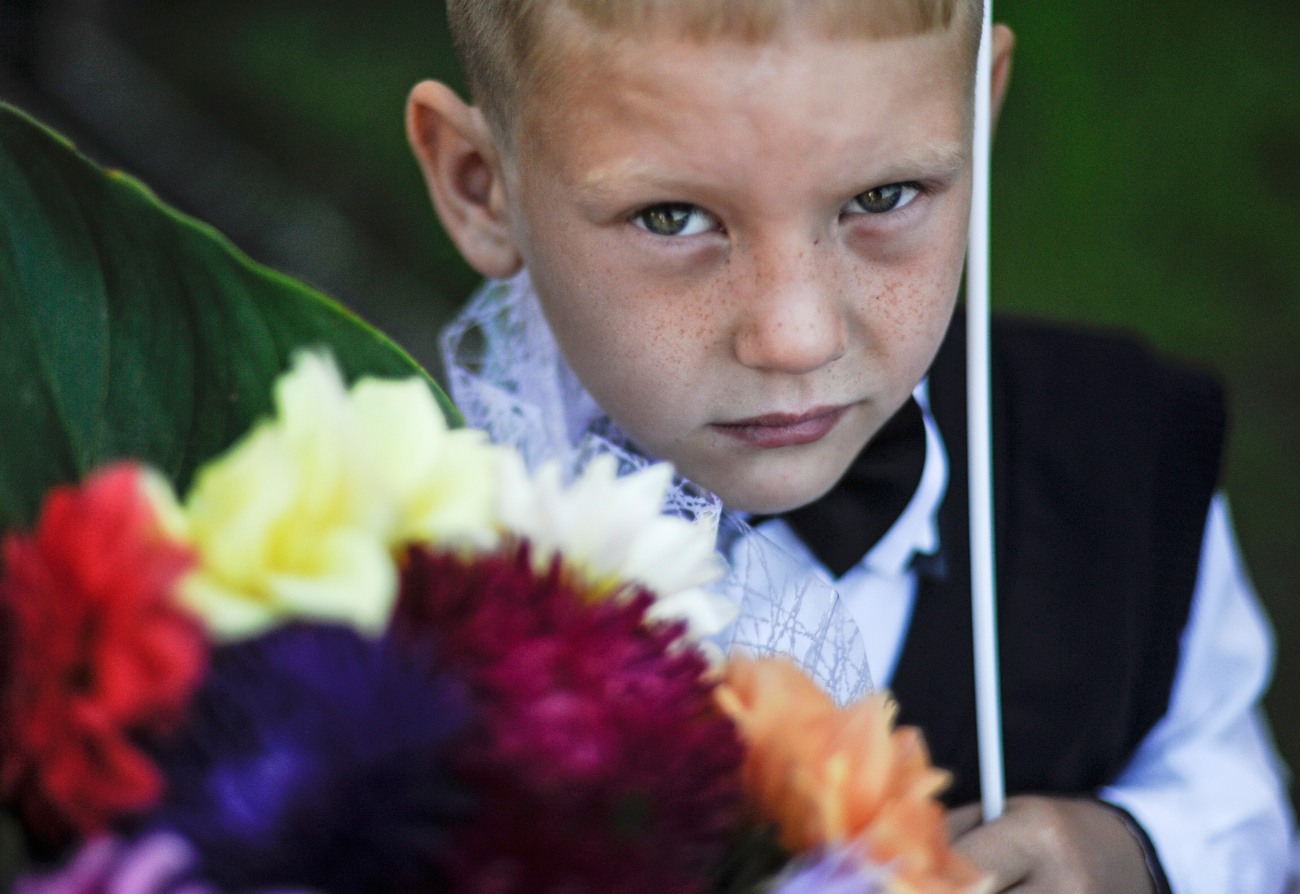Why more and more Russian children are studying at home

There are as many versions of family education as there are families. There are also large-scale communities of parents who teach children in organized groups. Photo: Yelena Gidaspova and her son Matvey.
Artem Zhitenev/RIA NovostiNatalya Geda is not your ordinary mother – besides the normal duties involved in bringing up a family, she also opted to take on the responsibility of educating her two children at home, an unusual choice in Russia but one that is becoming more widespread.
"For me, this was a forced choice," says Geda, a resident of St. Petersburg, whose son and daughter take frequent assessments at private schools to make sure their education is on track. "In the senior group of kindergarten, my son was diagnosed with asthma, doctors found that its cause was psychosomatic and advised not to send him to school, to choose home schooling.
“The understanding of the matter came later, and immersion and the development of my own method came even later than that. I am now a staunch supporter of home schooling, even if I am convinced that this form of training does not suit all families and all children. "
According to her, the main disadvantage of a conventional school is the large number of random social ties, which are unnecessary for a child. "The child is taken out of the natural ecosystem of the family, and, for 11 years, has to spend long hours, in fact, among strange people," says Geda.
No single methodology
There is no single program of family education. There are as many versions of family education as there are families. There are large-scale communities of parents who teach children in organized groups – in fact, they are more like chamber private schools.
But many prefer to teach the child right in the family, outside any groups. All home schoolers are usually assigned to a school where they are assessed for admission into universities. It is not bureaucratically difficult to switch to home schooling; it is enough to speak with the director and file an application.
Methods of assessment before final examinations – just as day schedules – differ from school to school. Natalya Geda's daughter attended a private school called Express, where she had to go twice a month to take oral and written tests on various subjects. "It was more like a conversation with a teacher than a normal school test," she says.
Families usually get to a point where children are studying in depth the subjects that they are interested in, with a relatively free schedule.
"Every day we start with a Bible reading and prayer, then we do subjects (for two to three hours) and then groups and free time begin – we do sports and music," says Daniil Chersunov, describing the daily routine for his family of four children.
 Families usually get to a point where children are studying in depth the subjects that they are interested in, with a relatively free schedule. Source: Artem Zhitenev/RIA Novosti
Families usually get to a point where children are studying in depth the subjects that they are interested in, with a relatively free schedule. Source: Artem Zhitenev/RIA Novosti
‘We want to educate children in the faith’
The case of the Chersunovs is one of those where the parents reject standard schooling for religious reasons, as well as to give the child the opportunity to attend more additional sections and groups.
"We are religious and we want to educate children in the faith, but also we want to invest in them ourselves, not just to do school homework with them," says Chersunov."Mom has the opportunity to work at home and teach the children on her own."
In addition, the Chersunovs want to teach their children a craft, so that they could earn a living before their prom night, not just to "distribute flyers at subway entrances," as the parents put it.
Natalya Gerda talks about a similar situation: By the end of 11th grade, her son can program in multiple languages and is engaged in web development, which he would hardly have achieved if his mother had sent him to a regular school.
School teaches ‘opportunism’
Many devoted supporters of home schooling talk about the issue of upbringing – according to the parents, today's Russian schools ignore it altogether.
But home schooling is inextricably linked with upbringing, Natalya Gerda says with confidence. "The Soviet school in the 1950s and 1960s was the world best's exactly because of the system of upbringing," she says. "As long as our school was concerned with the upbringing of a 'new type of man,' the Soviet education was the best."
Now, in her opinion, schools care only about exam scores. What is more, the Chersunov family believes that the "school teaches concealment, opportunism and destructive qualities of character."
Still, families who would advocate a radical rejection of education are almost non-existent. There is a percentage of underachievers among home schoolers, but it is not above average for the school to which they are assigned.
Read more: SibFU offers grants for PhD scholars>>>
Subscribe to get the hand picked best stories every week
All rights reserved by Rossiyskaya Gazeta.
Subscribe
to our newsletter!
Get the week's best stories straight to your inbox


